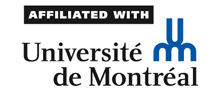In this blog post, we present some further analyses of the data from the Making Electoral Democracy Work 2017 Catalan election study. Our focus is now on demographics.
To determine which characteristics help explain vote choice in the 2017 Catalan election, we ran bivariate multinomial logistic regressions of vote choice on each of the demographic variables (age, first language, education, income, sex, and urban/rural). Age, first language, and education had an impact on vote choice.
In our final model, we regressed vote choice on these three demographic variables and we successfully predicted vote choice for 33.5% of respondents. We then simulated vote choice probabilities at each possible value of each of the demographic variables, keeping other variables at their most typical value (mean age, Spanish as first language, non-university education).
The first demographic characteristic we consider is age. Age is an important determinant of vote choice for most parties. As we can see in Figure 1, the anti-independence party Citizens (Cs) did best among younger voters. On the other hand, the anti-independence Socialists’ Party of Catalonia (PSC) did best among older Catalans. Like Citizens, the pro-independence Catalan Republican Left (ERC) and the Popular Unity Candidacy (CUP) did best among younger Catalans. The more conservative pro-independence coalition Together for Catalonia (JxC), led by Carles Puigdemont, did best among older voters. What is clear from these results is that younger Catalans are more supportive of the parties with the most extreme positions with respect to independence (Cs, CUP, and ERC).
Figure 1: Age and Vote choice
The second variable we look at is education. We compare respondents who have finished university to those who have not. The most striking result is that Citizens did much better among Catalans who have not completed university. Together for Catalonia was also more successful among Catalans without a university degree, but the effect is small. All other parties did best among university graduates. In short, a lack of university education strongly distinguishes Citizens’ supporters from supporters of other parties
Figure 2: University Education and Vote Choice
The most important demographic variable for explaining vote choice is a voter’s first language. We distinguish Catalans whose first language is Catalan from those whose first language is Spanish or who grew up in bilingual homes. The three pro-independence parties, CUP, ERC, and JxC, did much better among Catalan-speaking voters. Conversely, all other parties did better among Catalans who learned Spanish at home. The difference is greatest for Citizens, for which the probability of voting jumps from 0.11 among Catalan speakers to 0.35 among Spanish Speakers. It is also large for ERC and for JxC. The predicted probability of a Catalan speaker voting for ERC is 0.37; for a Spanish speaker, it is 0.19. For ERC, the probabilities are 0.32 and 0.14.
For all parties, language is the most important factor accounting for vote choice. Catalan speakers are much more likely to support pro-independence parties. Age is the second most important socio-demographic characteristic. Younger voters are more supportive of the parties with the most extreme positions with respect to independence (Cs, CUP, and ERC). The impact of education is more limited, except for the lower propensity of university graduates to vote for Cs.
Figure 3: First Language and Vote choice
Based on these results, we can characterize the typical voter of each party. The typical Citizens voter is young, Spanish-speaking and has not been to university. In contrast, the Socialists did best among older, Spanish-speaking voters. The PP’s electorate was young and Spanish-speaking.
The typical CUP or ERC voter is young and Catalan speaking. Together for Catalonia did best among older, Catalan-speaking Catalans. The typical voter for Catalonia in Common-We Can is somewhat older and Spanish-speaking.
The socio-demographic profile of party supporters reveals the presence of two strong cleavages. The first and most important is the linguistic cleavage; Catalan speakers are much more likely to vote for pro-independence parties. The second is age; younger voters are much more prone to support the parties that are most extreme on the independence issue, that is, the Cs on the one hand and CUP or ERC on the other hand.
Eric Guntermann is a postdoctoral researcher in the department of political science at Université de Montréal. He is the research coordinator for Making Electoral Democracy Work.
André Blais is Professor in the department of political science and holds a Research Chair in Electoral Studies at the Université de Montréal. He is the principal investigator for Making Electoral Democracy Work.
